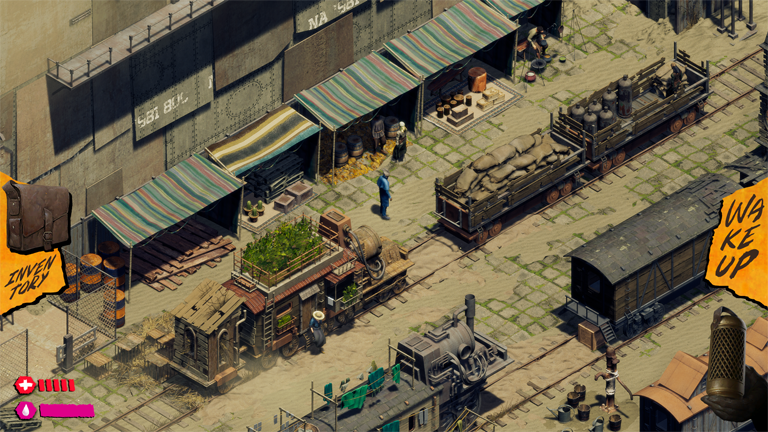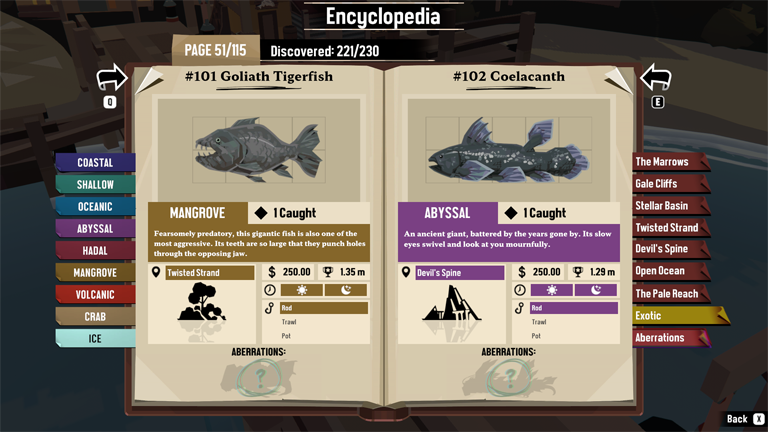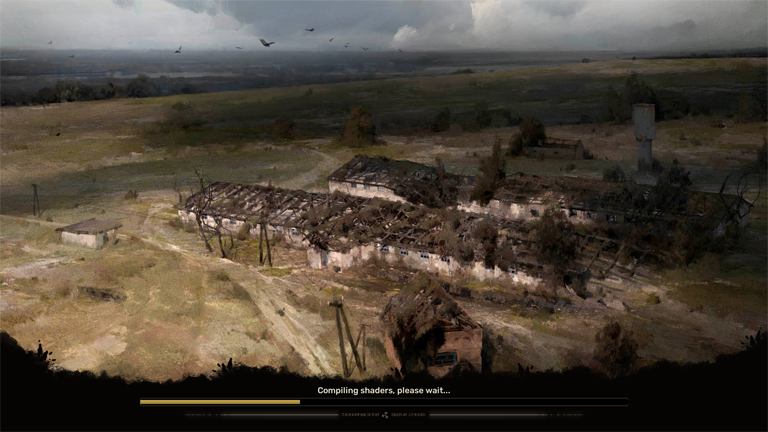Plot paradigms
Having had finished The Bookwalker and Dredge in the same week, I couldn't help but find it intriguing how a good plot can help or hinder a game depending on its overall structure.

In The Bookwalker, where the gameplay never got any more complex, difficult or less linear, the plot was the glue holding everything together — and what a plot it was! Etienne's story, while a bit slow to get going, really took off past the halfway mark and gave you a solid understanding of who he was, as a person, and (more importantly) who he could become.
And while leaving the most enticing plot hooks until so late in so short a game might seem dubious (before Black River Drifters, book four, Etienne kind of just goes through the paces); it nonetheless works. By the time you get into Timeless Mansion (book five) and come to grips with how Etienne ended up with his 30 year sentence, the hook's in good and proper and – from then on – the game jogs along to a (possibly) warm and fuzzy, satisfactory conclusion.
In Dredge, on the other hand, where the seemingly simple gameplay turned out to be so addictive and fun, the plot (while cohesive and competently written) not only felt like an afterthought, but almost got in the way.
Without spoiling the catch, as it were, let's say a Bad Thing Happened before the player takes the helm and your choices are to Set It Right or Make It (Infinitely) Worse (no happy endings in Dredge, I'm afraid: the most I could say for the better of the two is that it is fair). Which is fine: not every story has to end with fluff and rainbows...

But by injecting 20+ hours of gameplay that lets you feel like Just A Fisherman between the Bad Thing and its resolution, the story loses any sense of immediacy or urgency. What's worse, you start to bifurcate the player character into what the story tells you he is and what you (the player) experience him to be. By mashing the two back together at the end, Dredge feels almost unjust in its resolution (as if a Regular Joe got handed a fate meant for a Reprehensible Jerk).
Now, the game is gracious enough not to tie you to the plot if you don't feel like it (you can keep fishing all you want without being pushed toward a conclusion); but I almost feel like Dredge could have been even better if more (or exclusive) focus was placed on the fantastic gameplay rather than the plot...
And that might just be me nitpicking a pristine hull, but – hey – that's what critics do.
The radioactive elephant in the room
Speaking of being critical, after two full days of plodding along on my middling wireless connection (2 Mbps on a good day, downhill and with decent wind); I finally managed to download S.T.A.L.K.E.R. 2 — all 153 gigabytes of it.
That's not a typo, by the way: the installer for S.T.A.L.K.E.R. 2 was bigger than all three Witcher games, Cyberpunk 2077 and, oh, let's say X4 with every expansion combined (with about two Gbs to spare). And was it, in fact, five times better for all its size? Honestly, I can't say.
I can't say because, after downloading 40 installation files twice (for a giggle, GoG decided to change the game version two-thirds of the way through the first download); and then having to re-download five files which failed to authenticate during three installation attempts, a screen telling me the game was "compiling shaders" was as far as I got.

Online reading suggested that, on its first run, the game could spend between 60 and 75 minutes on this initial screen (until you could get into the settings, lower them and have the wait reduced to a mere 14 minutes or so on every launch); but I left the thing running for a couple hours and it never crashed — but neither did it budge beyond what you see above.
In the BC era (Before Cyberpunk), this would have been the time for me to dig in my trotters, roll up my nonexistent sleeves and go hunting for a solution. But, honestly? For all its faults and foibles – even though it crashed more than the stock market in the roaring 20s – Cyberpunk 2077 at least ran after I installed it.
And it was half the size.
I flashed forward to having to re-download nearly 160 Gbs every time I missed a patch on GoG (or, equally likely, every time GoG decided to skip releasing an offline patch and just updated the entire installer instead); promptly uninstalled S.T.A.L.K.E.R. 2 and requested a refund.
Between you and me, I don't really care if I actually get it. I'm not made of money, to be sure, but GSC's had a tough time getting this far and it doesn't look like things in Ukraine will be getting easier any time soon...
I'm sure patching will improve game stability in the future, but GSC's choice of betting heavily on graphics (hence the heft) instead of making gameplay more interesting or involved is counter to what I hoped S.T.A.L.K.E.R. 2 would be. The franchise definitely had room for improvement, but I'm not sure better visuals were where it was needed (not to the tune of 153 gigabytes, anyway).
Moving on
With The Bookwalker and Dredge wrapped up and S.T.A.L.K.E.R. 2 a no-go, my gaming plans for December have somewhat diminished. I have a few little indies lined up that I wanted to play, but – in terms of bigger releases – the only thing that springs to mind is Lex Imperialis (Rogue Trader's second DLC) that was slated for a December release.
Fortunately, my Cyberpunk 2077 playthroughs are only a third of the way done and – contrary to GoG's namesake – the best thing about good games is they never get old.
Stay warm, stay safe and happy playing!
Pig — out.
